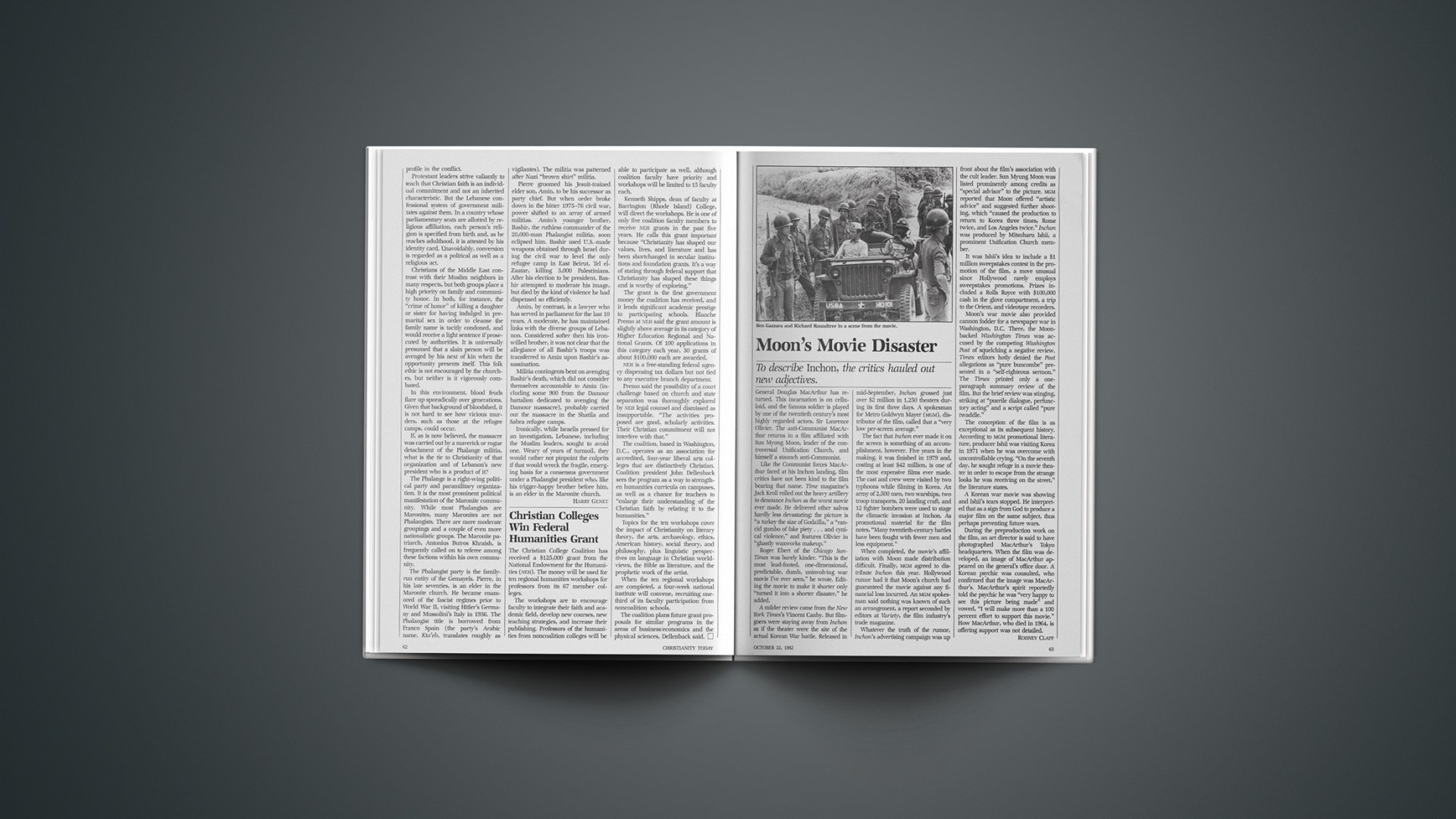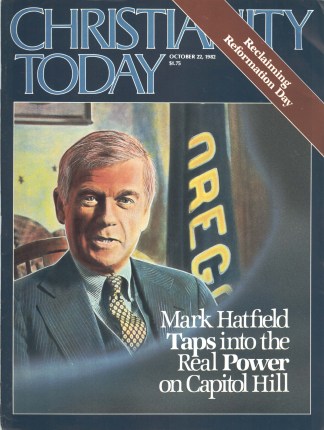To describe Inchon, the critics hauled out new adjectives.
General Douglas MacArthur has returned. This incarnation is on celluloid, and the famous soldier is played by one of the twentieth century’s most highly regarded actors, Sir Laurence Olivier. The anti-Communist MacArthur returns in a film affiliated with Sun Myung Moon, leader of the controversial Unification Church, and himself a staunch anti-Communist.
Like the Communist forces MacArthur faced at his Inchon landing, film critics have not been kind to the film bearing that name. Time magazine’s Jack Kroll rolled out the heavy artillery to denounce Inchon as the worst movie ever made. He delivered other salvos hardly less devastating: the picture is “a turkey the size of Godzilla,” a “rancid gumbo of fake piety … and cynical violence,” and features Olivier in “ghastly waxworks makeup.”
Roger Ebert of the Chicago Sun-Times was barely kinder. “This is the most lead-footed, one-dimensional, predictable, dumb, uninvolving war movie I’ve ever seen,” he wrote. Editing the movie to make it shorter only “turned it into a shorter disaster,” he added.
A milder review came from the New York Times’s Vincent Canby. But filmgoers were staying away from Inchon as if the theater were the site of the actual Korean War battle. Released in mid-September, Inchon grossed just over $2 million in 1,250 theaters during its first three days. A spokesman for Metro Goldwyn Mayer (MGM), distributor of the film, called that a “very low per-screen average.”
The fact that Inchon ever made it on the screen is something of an accomplishment, however. Five years in the making, it was finished in 1979 and, costing at least $42 million, is one of the most expensive films ever made. The cast and crew were visited by two typhoons while filming in Korea. An army of 2,500 men, two warships, two troop transports, 20 landing craft, and 12 fighter bombers were used to stage the climactic invasion at Inchon. As promotional material for the film notes, “Many twentieth-century battles have been fought with fewer men and less equipment.”
When completed, the movie’s affiliation with Moon made distribution difficult. Finally, MGM agreed to distribute Inchon this year. Hollywood rumor had it that Moon’s church had guaranteed the movie against any financial loss incurred. An MGM spokesman said nothing was known of such an arrangement, a report seconded by editors at Variety, the film industry’s trade magazine.
Whatever the truth of the rumor, Inchon’s advertising campaign was up front about the film’s association with the cult leader. Sun Myung Moon was listed prominently among credits as “special advisor” to the picture. MGM reported that Moon offered “artistic advice” and suggested further shooting, which “caused the production to return to Korea three times, Rome twice, and Los Angeles twice.” Inchon was produced by Mitsuharu Ishii, a prominent Unification Church member.
It was Ishii’s idea to include a $1 million sweepstakes contest in the promotion of the film, a move unusual since Hollywood rarely employs sweepstakes promotions. Prizes included a Rolls Royce with $100,000 cash in the glove compartment, a trip to the Orient, and videotape recorders.
Moon’s war movie also provided cannon fodder for a newspaper war in Washington, D.C. There, the Moon-backed Washington Times was accused by the competing Washington Post of squelching a negative review. Times editors hotly denied the Post allegations as “pure buncombe” presented in a “self-righteous sermon.” The Times printed only a one-paragraph summary review of the film. But the brief review was stinging, striking at “puerile dialogue, perfunctory acting” and a script called “pure twaddle.”
The conception of the film is as exceptional as its subsequent history. According to MGM promotional literature, producer Ishii was visiting Korea in 1971 when he was overcome with uncontrollable crying. “On the seventh day, he sought refuge in a movie theater in order to escape from the strange looks he was receiving on the street,” the literature states.
A Korean war movie was showing and Ishii’s tears stopped. He interpreted that as a sign from God to produce a major film on the same subject, thus perhaps preventing future wars.
During the preproduction work on the film, an art director is said to have photographed MacArthur’s Tokyo headquarters. When the film was developed, an image of MacArthur appeared on the general’s office door. A Korean psychic was consulted, who confirmed that the image was MacArthur’s. MacArthur’s spirit reportedly told the psychic he was “very happy to see this picture being made” and vowed, “I will make more than a 100 percent effort to support this movie.” How MacArthur, who died in 1964, is offering support was not detailed.










